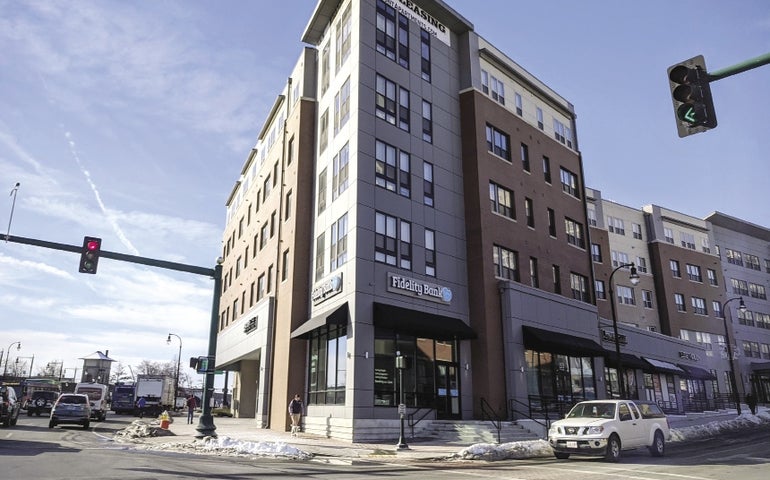Fidelity Bank, headquartered in Leominster, as well as its former president, John Merrill, have agreed to a $22.5-million settlement as part of a larger class action lawsuit related to the TelexFREE Ponzi scheme, although a significant portion of those costs will be covered by the bank’s insurance.
TelexFREE, a Marlborough-based Ponzi scheme which also had offices in Brazil, was co-owned by Merrill’s brother, James Merrill, and, according to settlement documents, maintained deposit accounts at Fidelity Bank from August 2013 to January 2014. The settlement was approved by the judge in the case on Friday.
Since TelexFREE was formally charged in April 2014, John Merrill and Fidelity denied knowing about the Ponzi scheme nature of the business, a stance reiterated in settlement documents.
“The bank agreed to settle what is now a nearly seven-year-old civil case to avoid even more prolonged and expensive litigation that would detract from our focus of serving our Central Massachusetts community,” said Derek Beahn, Fidelity’s senior vice president and director of marketing, in a statement provided to WBJ. “Although Fidelity never knowingly banked an organization engaged in fraud, we are pleased that this settlement allows us to put this matter behind us.”
Beahn said a significant portion of the settlement was covered by the bank’s insurance, but declined to clarify how much, noting that Fidelity ”still finished 2020 profitable and well-capitalized.” At the end of June, Fidelity Bank had $924 million in local deposits and $1.1 billion in total assets, according to the Federal Deposit Insurance Corp., which makes Fidelity the 12th largest bank in Central Massachusetts.
Fidelity and Merrill said in court documents they received no benefit from the TelexFREE Ponzi scheme other than through fees for services related to the timeframe during which the company maintained accounts with the bank.
Merrill left Fidelity in 2016 but was considered, as part of the settlement, one of the Fidelity Bank defendants.
The TelexFREE Ponzi scheme, like any other business of its nature, is complex. At its heart, the company posed as a tech company selling voice-over-internet-protocol, more commonly known as technology allowing you to send and receive phone calls over the internet. However, according to a grand jury indictment from 2014, the bulk of the company’s profits came through a tiered promoter system, during which promoters bought into the company under the premise that they would make back significant returns on their investment.
Instead of selling the product, promoters generally recruited other promoters, who then also paid into the company, according to the indictment. The indictment explained:
“By virtue of this compensation system, from its inception TelexFREE took in substantial sums, not from genuine retail sales of its VoIP product, but from new promoters buying into the TelexFREE system. That money was then used, in turn, to pay TelexFree’s commission, bonus, and other financial obligations to existing promoters. TelexFree’s business operations, and ongoing commission and bonus payments to existing promoters, depended on the constant influx of funds from new promoters.”
James Merrill, of Ashland, was sentenced in 2017 to six years in federal prison for his involvement in the scheme.
A press release from the Department of Justice said at the time of his sentencing that TelexFree had stolen more than $3 billion from its victims.
His business partner, Carlos Wanzeler, formerly of Northborough, fled to Brazil, according to the Department of Justice.
According to a website set up for TelexFree’s victims, the $22.5-million settlement is the most recent of four that have been approved. The first three were approved in July 2020 and cumulatively total $2.275 million.
Fidelity previously agreed to pay $3.5 million toward a relief fund for the scheme’s Massachusetts victims, back in 2014.

